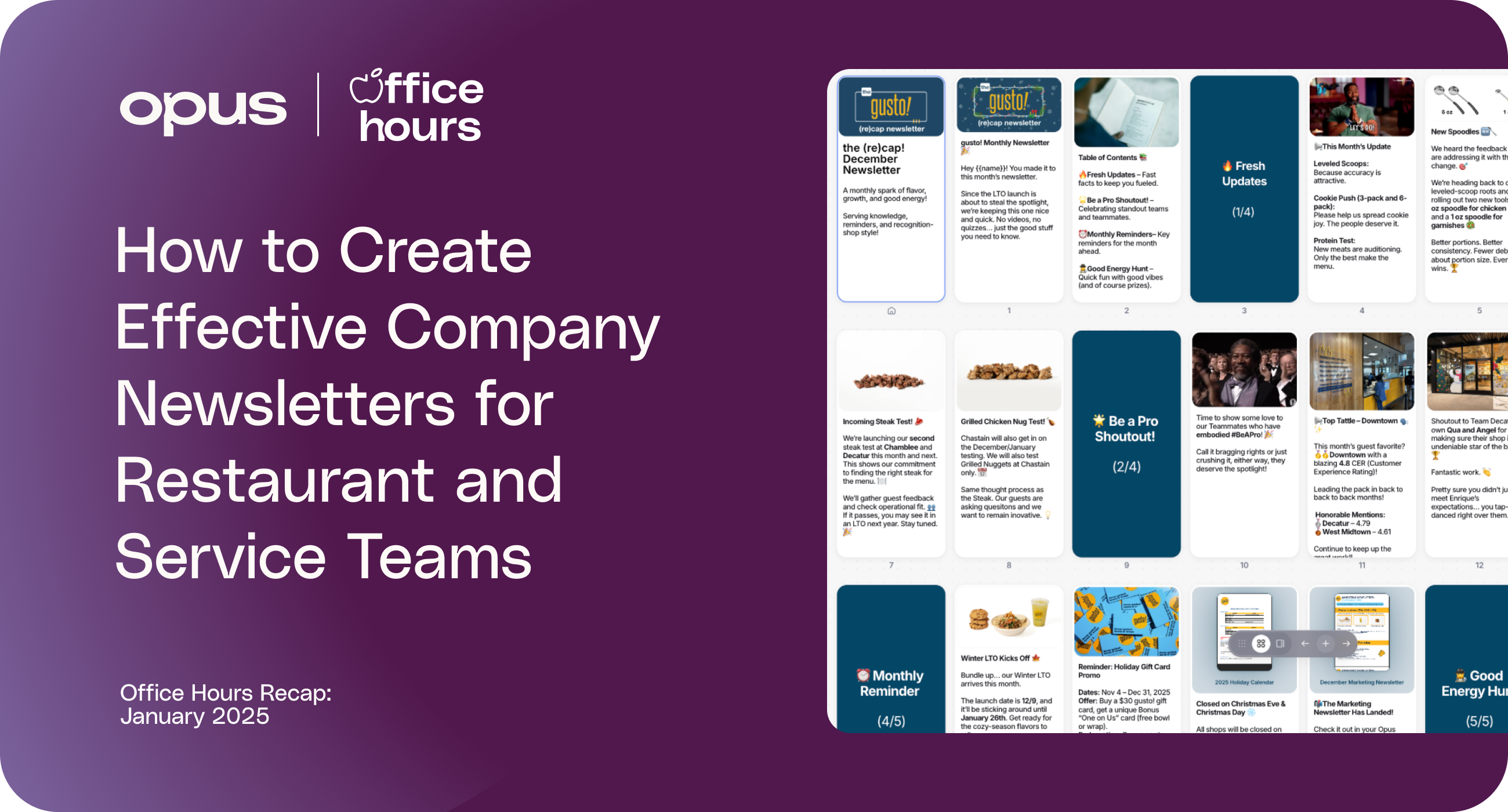In our webinar session, our panelists, Carolyn Richmond, Chair of the Hospitality Practice at top labor law firm, and Sarah Diehl, Cofounder and Principal at Empowered Hospitality, focused on trends around two main HR issues: increasing employee retention and wage and hour legislation. We’ve incorporated both panelists’ insights into the key takeaways below.
Invest in long-term retention strategies, not band-aids.
Retention is a universal challenge for businesses, and creating a positive work environment is key to improving employee retention. With a younger generation entering the workforce—many born after 9/11 and having experienced significant global events including the Pandemic—more and more employees are prioritizing a need to feel safe and respected in their workplaces, with an appropriate work/life balance. While employers cannot control external factors like war or disease, they can control the workplace environment and culture.
It is common for restaurants to have low opt-in rates for benefits, so better benefits alone do not remedy a poor workplace culture.
Benefits are a new focus in the hospitality industry and can contribute to employee retention, but they are not the sole factor. When evaluating retention issues, other factors such as career development, inclusivity, and reliable compensation are also important. While offering a benefits program might make you a more attractive employer, fostering an authentic internal culture of respect, communication, and transparency can help fight long-term turnover. The good news is that many of the tactics that Sarah discusses in the webinar are inexpensive or free, giving HR teams budget-friendly tools that benefit the business.
‘Quiet quitting’ is a symptom of low engagement, and underscores an opportunity to improve culture.
The concept of 'quiet quitting', where employees are physically present but mentally and emotionally disengaged, is another issue that has become particularly prevalent in employees. While this is harder to do in the hospitality industry, ‘quiet quitting’ indicates low engagement, and suggests that employees don’t feel invested, accountable, or respected the workplace. Reinforcing HR policies around attendance is one tool that can help fight this, but still risks high-performing employees bearing the brunt of unengaged team members—particularly in a restaurant setting where teamwork is essential. Instead, create programs that cultivate relationships between managers and their team members on day 1, and invest in team-building activities that actually nurture those relationships.
Wage & Hour laws are confusing and nuanced, and an employer cannot rely on HRIS and payroll vendors alone to keep your business legally compliant.
The restaurant industry is grappling with increasing legal changes and liabilities, including wage and hour regulations. From the 80/20/30 ”tip credit” rules and meal break compliance, to changing sick leave and scheduling law changes, the restaurant workplace demands that employers stay constantly up to date. While HRIS software and payroll provider support are beneficial tools for employers, they do not guarantee legal compliance. Ultimately, the legal burden for compliance rests squarely on the employer. Staying up to date on local, state, and federal legislature and seeking support from HR professionals and labor attorneys is key to remaining on the right side of the law.
This session provided numerous insights into the current challenges and future predictions for employment issues in the hospitality industry. By staying compliant with legal requirements, utilizing effective HR practices, and maintaining open communication, businesses can more effectively navigate the ever-increasing complexities of the hospitality workplace.
We’re proud to partner with experts at top labor law firms to deliver a suite of Sexual Harassment Prevention courses that address the evolving needs of the hospitality industry and frontline workers.







